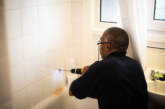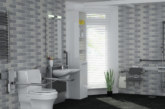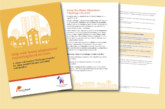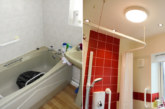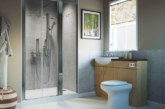New research from the Centre for Ageing Better highlights how councils and service providers are working to help local people live in their homes for longer through home adaptations. LABM takes at look the organisation’s latest report.
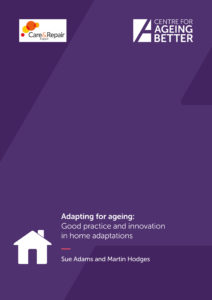 Life-changing adaptations made in the home enable people, particularly those managing health conditions or that have experienced a loss of mobility, to carry out every day activities with greater ease. The Centre for Ageing Better’s new report — Adapting for ageing: Good practice and innovation in home adaptations — jointly published with Care & Repair England, identifies examples of good practice from across England on providing life-changing adaptations in the home to enable people to carry out every day activities such as cooking, bathing or using the toilet.
Life-changing adaptations made in the home enable people, particularly those managing health conditions or that have experienced a loss of mobility, to carry out every day activities with greater ease. The Centre for Ageing Better’s new report — Adapting for ageing: Good practice and innovation in home adaptations — jointly published with Care & Repair England, identifies examples of good practice from across England on providing life-changing adaptations in the home to enable people to carry out every day activities such as cooking, bathing or using the toilet.
It offers best practice advice to local authorities and includes a number of calls to action for councils and service providers. These include proactively raising awareness of the available support and how to access it, delivering home adaptations quickly and without means-testing, linking adaptation services with vital home improvements and working with handyperson services.
Good practice in home adaptations
Demand for aids, adaptations and accessible housing across England is rising as people are living longer. Also, increasing numbers of older people live with multiple long-term health conditions or experience reductions in mobility. Recent analysis by LSE shows the number of older people in need of help with everyday living will nearly double in the next 25 years.
More than 90% of people over the age of 65 live in mainstream housing (rather than specialist retirement accommodation). According to research, only 7% of UK homes meet basic national accessibility requirements.
While the report praises individual examples of innovative approaches to providing practical housing help, the authors warn that quality of provision is ‘highly variable’ across the country. The report highlights the benefits of a proactive, prevention-focused approach to providing adaptations to older people’s homes, while improving the information and advice offered on the options available.
Previous research shows that investment in adaptations is highly cost-effective, helping to improve wellbeing, keep people out of hospital, prevent or delay moves into residential care, and reduce the need for carers. This is particularly true when they are installed early on and in combination with repairs and improvements.

Measuring outcomes
There also needs to be a more consistent approach to measuring the outcomes of home adaptations and improvements as part of an integrated approach to housing, health and care. Given the wide-ranging impacts of home adaptations, particularly for reducing pressure on the NHS, it is imperative that national Government continues to fund the Disabled Facilities Grant (DFG) and ensure councils have sufficient revenue funding to provide the services that deliver the adaptations effectively.
Dr Rachael Docking, Senior Evidence Manager, Centre for Ageing Better says: “Through our call for practice, we’ve uncovered fantastic examples of innovative, forward-thinking approaches to helping people to keep on living in their homes for longer. The Disabled Facilities Grant has been called the best-kept secret in social care funding, and this report highlights those councils that are making the most of what powers and revenue they have. We’re sharing the good practice we’ve found so that everyone can enjoy the benefits of a good later life – and unnecessary NHS and social care costs can be avoided.”
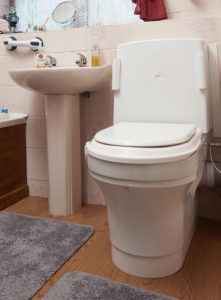
Sue Adams OBE, Chief Executive, Care & Repair England comments:
“This research has revealed inspirational examples of excellent adaptations provision across the country. Innovation is being led by outstanding individuals and supported by visionary local authorities and others. The resulting home adaptations are life transforming for individual older people as well as benefiting the NHS and social services. Local authorities are under great financial pressure and so the really big challenges are to keep these great pioneers going as well as increasing adoption of best practice everywhere.”
“The report maintains that ‘retrofit’ is having, and will continue to have, a major impact on creation of accessible homes. It stresses the importance of ‘added value’ services, and creation of a culture of continuous improvement. The report also cites people’s desire for good design,” says Robin Tuffley, Marketing Manager at Closomat. “All those boxes are ticked by the service we provide. It’s about peace of mind, for all involved, for as long as the adaptation is needed.”
Closomat manufactures shower (wash & dry toilets) as well as supplying a raft of additional bathroom fixtures that enable people to continue to live independently, and more safely, in their home. The company also offers a complete project management service, covering survey to install and commissioning.



